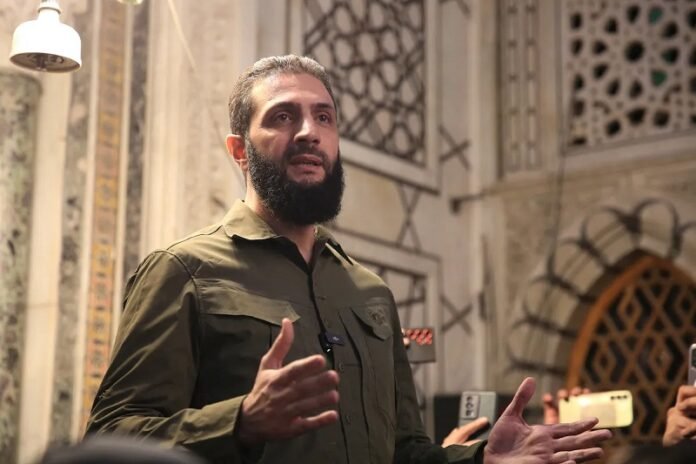An Israeli Message to HTS: What’s the True Objective?
Israeli journalist Barak Ravid’s report has raised questions about Israel’s actions in the context of the Syrian conflict, following revelations about a message sent to Hay’at Tahrir Al-Sham (HTS).
This message, delivered through three intermediaries, carried a clear warning against approaching Israeli borders.
But why is Israel engaging with such a controversial organization in Syria? Is this purely about protecting its borders, or does it reflect deeper intentions to reshape the Syrian landscape in its favor?
Israel: Supporting factions or reducing threats?
Ravid highlighted Israel’s close ties with various groups in Syria, such as Kurdish groups in the north and the Druze community in the Golan Heights.
The question here is: Is this cooperation a defensive strategy, or is it part of a broader effort to expand its regional influence?
Israel claims it is prepared to intervene if the Druze community in Syria is threatened. Is this a genuine humanitarian commitment, or merely a pretext to justify its military interventions?
Israel’s stance on HTS: A double-edged approach?
It is noteworthy that Israel displays greater skepticism towards HTS than the United States or European countries.
This raises questions about the nature of the messages it sends to HTS, especially if the group is viewed with suspicion.
Why, then, engage with HTS? Is this communication a tactic to weaken certain forces in Syria while maintaining defensive lines for Israel?
Intensified airstrikes: Tactical goals or long-term strategy?
Israel’s intensified airstrikes in Syria, exceeding 400 in recent days, reflect a systematic targeting of Syrian military infrastructure. This includes the destruction of arms depots, air and naval forces, and chemical weapons programs.
The question arises: Is Israel merely neutralizing Syria’s military capabilities as a defensive measure, or is it aiming to permanently shift the region’s military balance in its favor?
Regional Repercussions: What happens after Syria’s military is weakened?
Ravid stated that Israel aims to ensure that any future power controlling Syria will need a long time to rebuild its army, making Syria less of a threat.
However, this scenario opens the door to questions about the implications of this policy for regional stability:
- Will the weakening of Syria’s military lead to increased influence of armed and terrorist factions?
- How will this policy affect Israeli relations with major powers, especially Russia, which has a significant military presence in Syria?
The Role of the International Community: Absence or Complicity?
The apparent lack of an active international role in de-escalating tensions in Syria, coupled with Israel’s intensified interventions, is striking.
Does this silence reflect indirect complicity, or is the international community incapable of finding lasting solutions to the conflict?
In Conclusion: Towards Reassessing Regional Calculations
Recent developments show that Israel is seeking to exploit Syria’s chaotic situation to achieve its strategic goals. But the key question remains: Can this approach ensure lasting stability, or will it deepen the conflict? How can Syria break free from the cycle of foreign interventions to build a more stable future?


